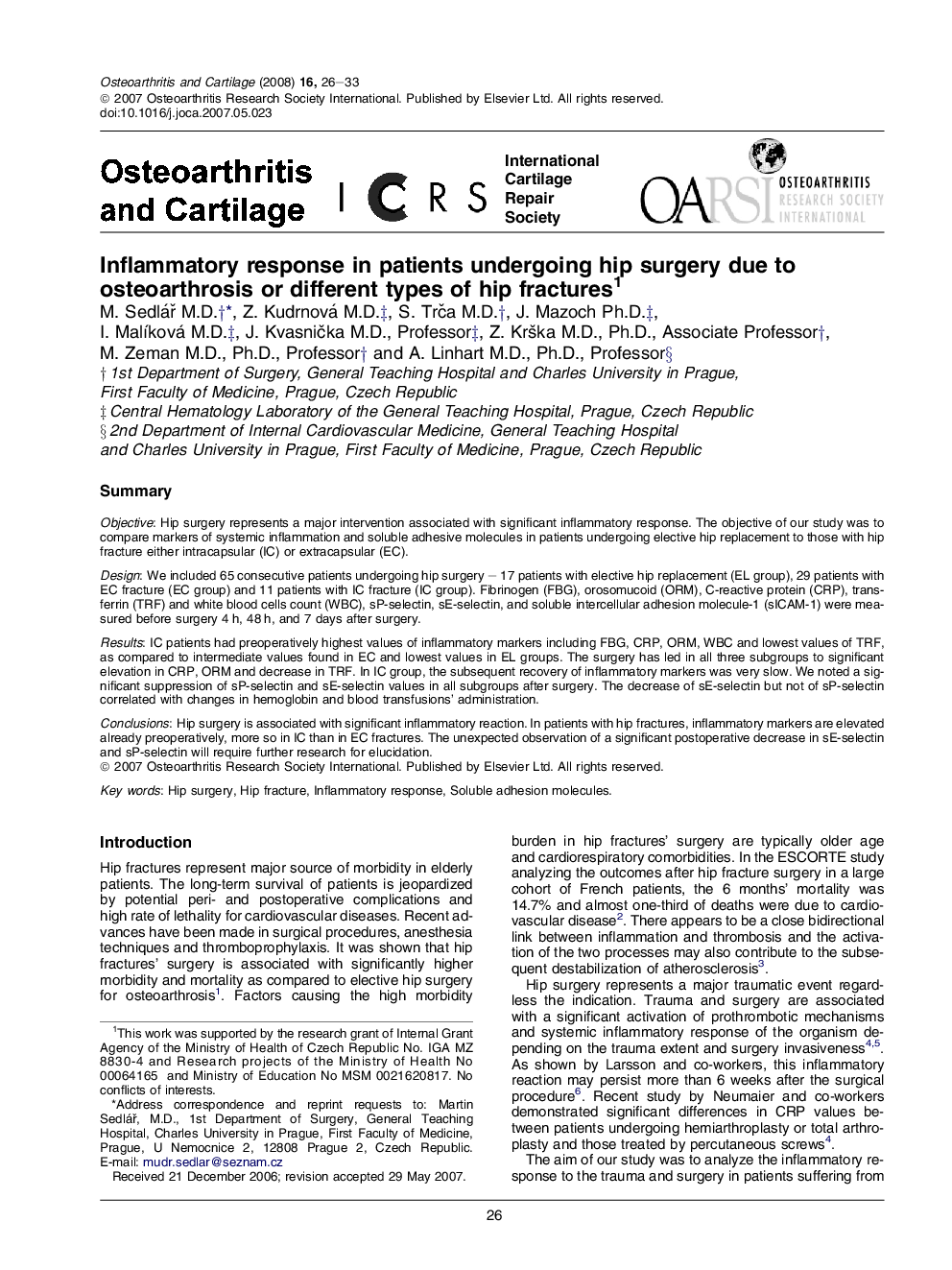| Article ID | Journal | Published Year | Pages | File Type |
|---|---|---|---|---|
| 3381257 | Osteoarthritis and Cartilage | 2008 | 8 Pages |
SummaryObjectiveHip surgery represents a major intervention associated with significant inflammatory response. The objective of our study was to compare markers of systemic inflammation and soluble adhesive molecules in patients undergoing elective hip replacement to those with hip fracture either intracapsular (IC) or extracapsular (EC).DesignWe included 65 consecutive patients undergoing hip surgery – 17 patients with elective hip replacement (EL group), 29 patients with EC fracture (EC group) and 11 patients with IC fracture (IC group). Fibrinogen (FBG), orosomucoid (ORM), C-reactive protein (CRP), transferrin (TRF) and white blood cells count (WBC), sP-selectin, sE-selectin, and soluble intercellular adhesion molecule-1 (sICAM-1) were measured before surgery 4 h, 48 h, and 7 days after surgery.ResultsIC patients had preoperatively highest values of inflammatory markers including FBG, CRP, ORM, WBC and lowest values of TRF, as compared to intermediate values found in EC and lowest values in EL groups. The surgery has led in all three subgroups to significant elevation in CRP, ORM and decrease in TRF. In IC group, the subsequent recovery of inflammatory markers was very slow. We noted a significant suppression of sP-selectin and sE-selectin values in all subgroups after surgery. The decrease of sE-selectin but not of sP-selectin correlated with changes in hemoglobin and blood transfusions' administration.ConclusionsHip surgery is associated with significant inflammatory reaction. In patients with hip fractures, inflammatory markers are elevated already preoperatively, more so in IC than in EC fractures. The unexpected observation of a significant postoperative decrease in sE-selectin and sP-selectin will require further research for elucidation.
